It’s time again for a little adventure in inflation! We’ve already gleefully discovered how much $10,000 could buy us in the year we were born, as well as how much the equivalent of today’s average new vehicle price of $48,000 would get us in 1985 (not as much as you’d think). We’re running back that concept today, this time to 1995 when $48,000 works out to $24,000.
Once again, your money is not going as far as you might think. Luxury brands are out of the question, apart from the most basic Volvos and Saabs, which were more luxury-adjacent back in the mid 1990s. The bulk of the new car market existed in the upper teens, though, so there’s still plenty of room to get a great car. Just not as great as you probably expected.
By the way, use this amazing resource to play along and find the base prices of every car on sale in 1995.
Here are the rules of this exercise, pretty much lifted from the last post.
- It has to be a new 1995 model year car.
- It has to be within $1,000 of $24,000. If you’re shorter than that, look for options. If you’re over, you can’t buy the car.
OK, now crank the TLC, and let’s get back to 1995 …
1995 Nissan 240SX SE
Senior Editor James Riswick: Unlike our 1985 adventure, I’m saying to hell with family obligations. I therefore narrowed it down to two modern classic choices: Honda Prelude Si and the Nissan 240SX SE. They had similar power outputs from their four-cylinder engines. They both looked great, albeit in very different ways. The Prelude had a much cooler interior; indeed it was one of the coolest interiors Honda has ever created. The 240SX was rear-wheel drive. Right, so I’m going with the Nissan, then. For whatever reason, this car didn’t really get on my teenaged car enthusiast radar back in the day, nor thereafter. It should have. Who knows, maybe I would’ve got one as my first car (doubtful, RWD would’ve been a no go for my parents given Indiana winters). But I’m the one going back in time here with my own fake money, so damn it, RWD all day. Base price was $21,219, but some combination of optional ABS, limited-slip diff, sunroof and the Leather Package would almost certainly get me into range.
(By the way, let’s just note that a Honda Prelude Si, which wasn’t even the top-shelf model, went for more in today’s dollars than a Civic Type-R).
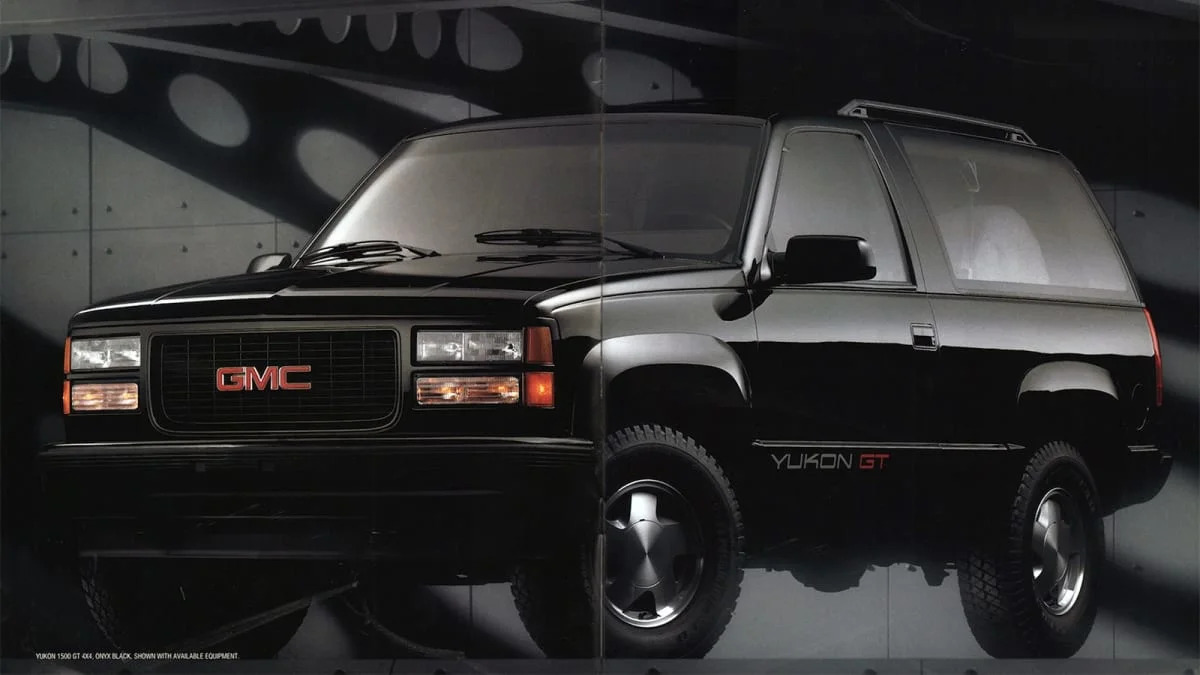
1995 GMC Yukon GT Two-Door
Senior Editor Jeremy Korzeniewski: Guess what? It was possible in 1995 to get a brand-new GMC Yukon two-door SUV with a 5.7-liter V8, a five-speed manual transmission and part-time four-wheel drive. It was also possible to get all that for a little under our $24,000 price cap, and to top it all off, it could be ordered in the blacked-out GT trim you see above. This is one seriously cool ‘ute, and one that will also prove highly versatile for my imaginary ’90s-adult self (I was 15 back then in real life). It looks great, performs admirably (minus gas mileage, naturally) and will haul all of my stuff with ease. In the present-day real world, I own a ’93 GMC Suburban and drive it regularly. So I already know I’d have loved this thing back when it was new. And maybe I’d still have it nearly 30 years later.
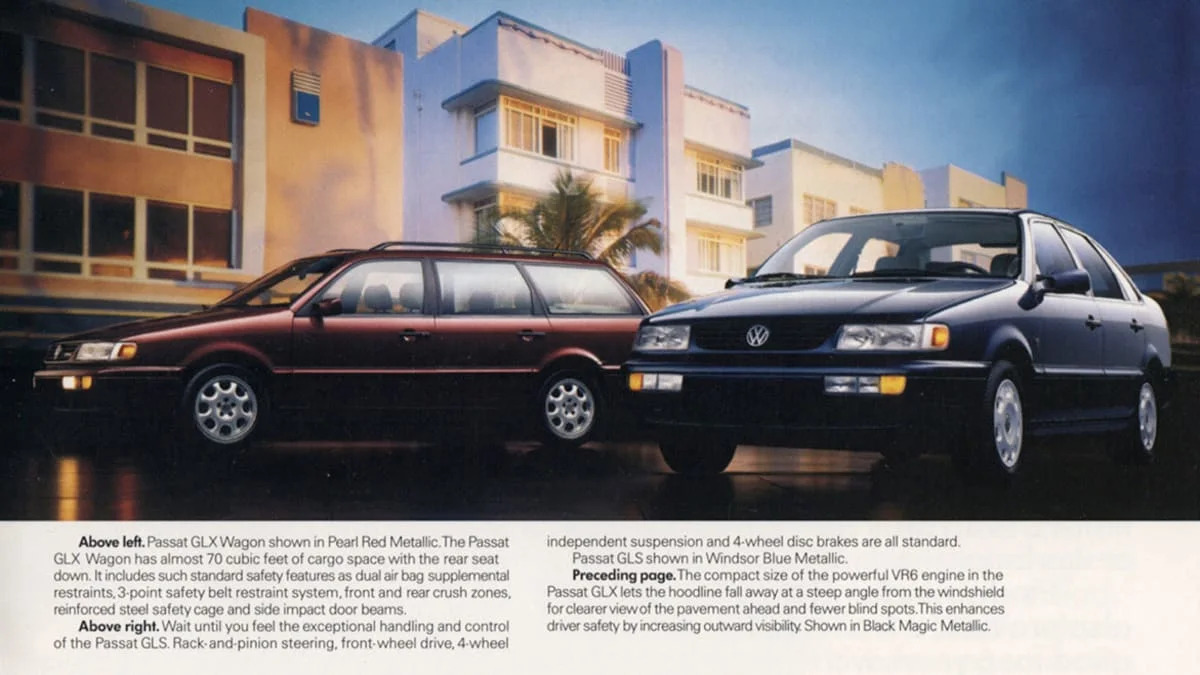
1995 Volkswagen Passat GLX
Associate Editor Byron Hurd: My first car! I loved this thing almost as much as it hated my wallet. I had friends look at me cross-eyed for saying how much I liked a car that frequently didn’t start and often required expensive repairs. “It’s a great car,” I’d repeatedly insist. “By what measure, precisely?” they’d ask. Well, not in those words; we were teenagers. But they drove hand-me-down Hondas and Toyotas; we might as well have been speaking different languages.
I had a green-over-tan five-speed sedan with the VR6, but doing it all over again, I’d probably opt for a wagon in Windsor Blue. Per those printed things we once used to clean windshields, you could option the then-newly refreshed B4 Passat up to just under $25,000. Perfect.
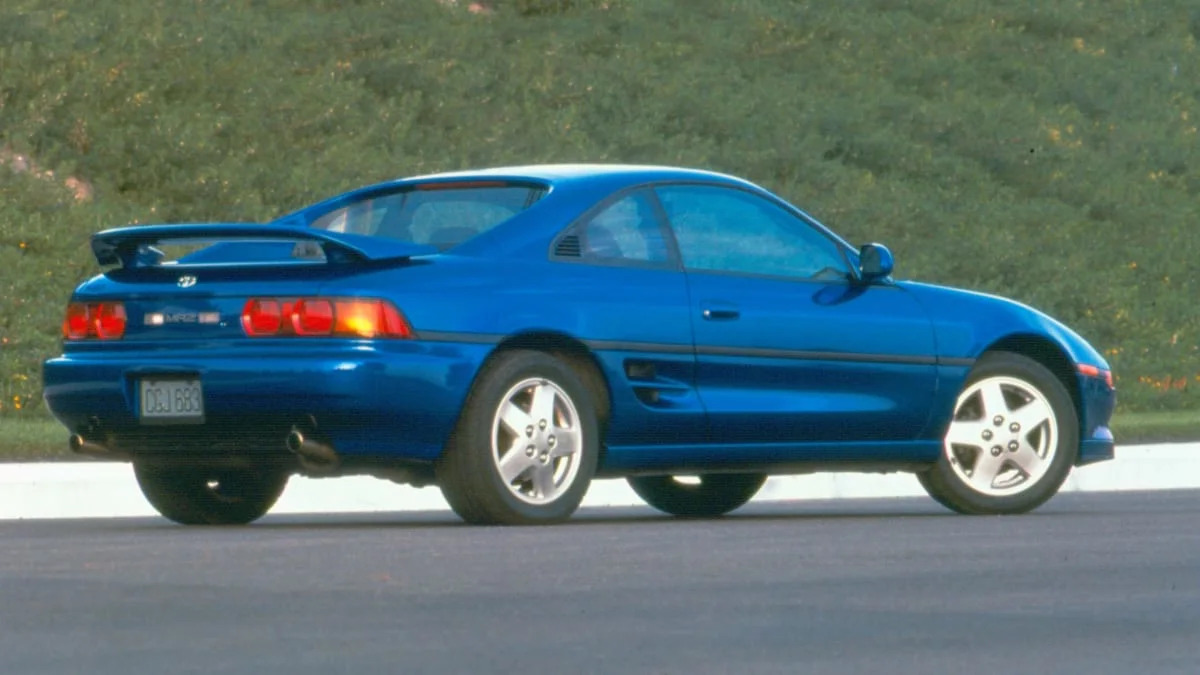
1995 Toyota MR2
Senior Editor John Beltz Snyder: Unfortunately, the Subaru SVX and its terrible automatic transmission are beyond the budget. The MR2 has always been a car I’ve admired from afar, but I’ve never actually driven one. In 1995, I’m probably regretting not getting a first-gen MR2, but better late than never, right? This exercise puts the manual-equipped coupe just within reach. That’s fine — I’d have picked the manual anyway, and I don’t think I’d ever remove the top if I could. People will be intrigued when I say I drive a mid-engined two-seater, and impressed with my sensibility when they realize it’s a Toyota, and not something European and expensive. Obviously, I’m naming it Mister Two.

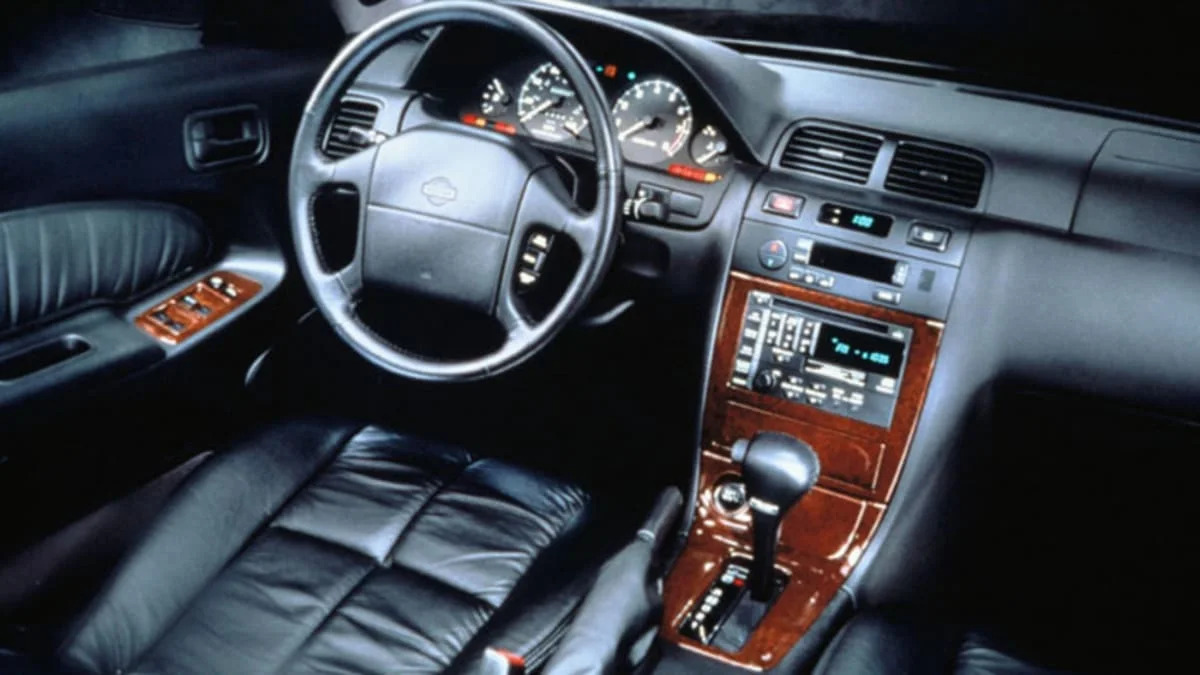
1995 Nissan Maxima
Managing Editor Greg Rasa: Perusing 1995 prices, it was a pleasure to see so many affordable new cars in the teens and even low teens. Those were the days. On the other hand, choices I thought possible for our pretend price point were well over budget: a Nissan 300ZX was out of reach. But the 1990s were the pre-Ghosn-cost-cutting days, and Nissan had several nice offerings, such as Riswick’s 240SX. The flagship was the Nissan Maxima.
I bought one of these new, a 1999 in Super Black, my wife’s and my first “grown-up” car, and I would enjoy going back in time and buying one again. The Maxima had a great V6 with 190 horsepower, and could put down 0-to-60 in 7.6 seconds, both solid numbers back then. I recall it being quiet on the highway, with a nice leather interior, near-luxury really. Cross-shopping mine against the Honda Accord of the era, the Maxima was the hands-down winner – more sophisticated, more powerful, more sporty fun. Nissan marketers used to call these the “4DSC” (four-door sports car), which might be a stretch, but not a huge one. A 1995 Maxima SE with a five-speed manual(!) started at just $21,599, which leaves room in the budget for every option offered. That said, I remember the car as coming pretty loaded.
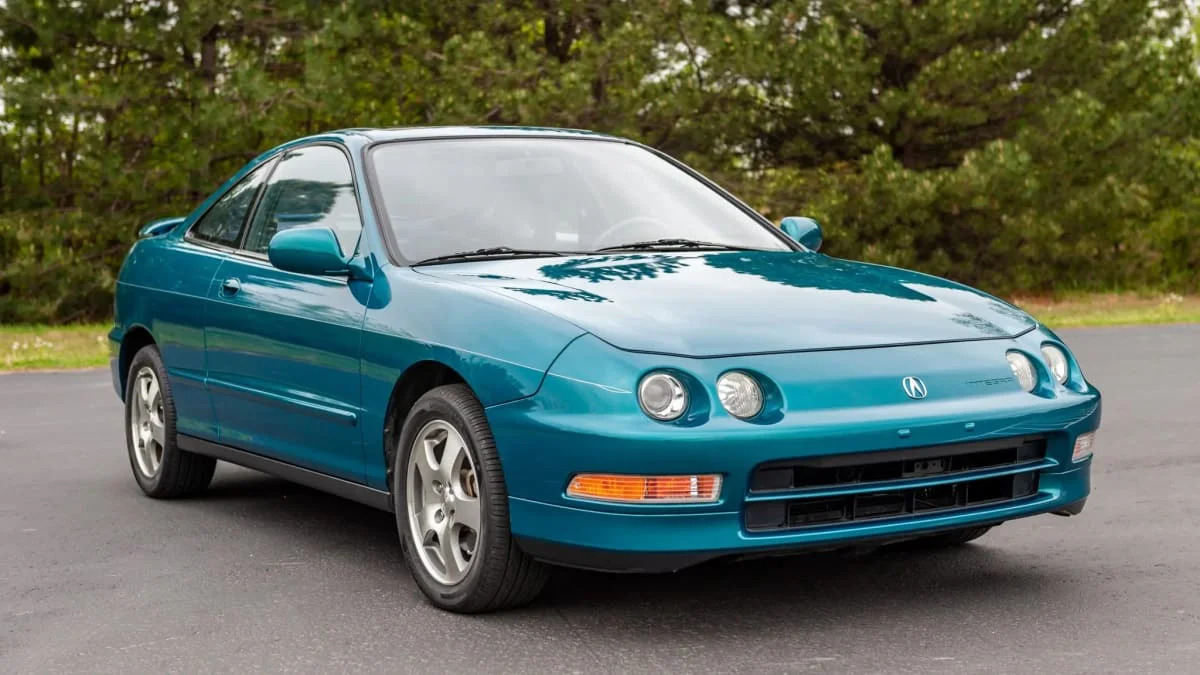
1995 Acura Integra GS-R
Road Test Editor Zac Palmer: I suppose I’ll just buy the car that’s sitting in my garage right now! Mine’s actually a 2001 model year GS-R, but there weren’t really many changes over the years, so this ’95 will do me just fine. The GS-R Coupe (but hey the sedan is rad, too) was a rather agreeable $21,150 back in 1995. It has the important bits to make it fun: a 1.8-liter four-cylinder with VTEC and 8,100 rpm redline, close-ratio five-speed manual and a super-fun chassis. Factory options were practically non-existent outside of leather seats for the loaded GS-R model, but there were dealer add-ons like a security system, foglights and mud guards that’ll get me within the regs. I’d have mine in beautiful Paradise Blue Green (pictured), which is far more interesting than the Taffeta White my personal car is finished in. I truly couldn’t be happier with my pick and know that it’d serve me well for years to come. And lastly, for anyone complaining about the new Integra’s price, just know that this GS-R is actually more expensive when adjusted for inflation than its closest 2024 equivalent, the A-Spec w/Technology Package and six-speed manual transmission.
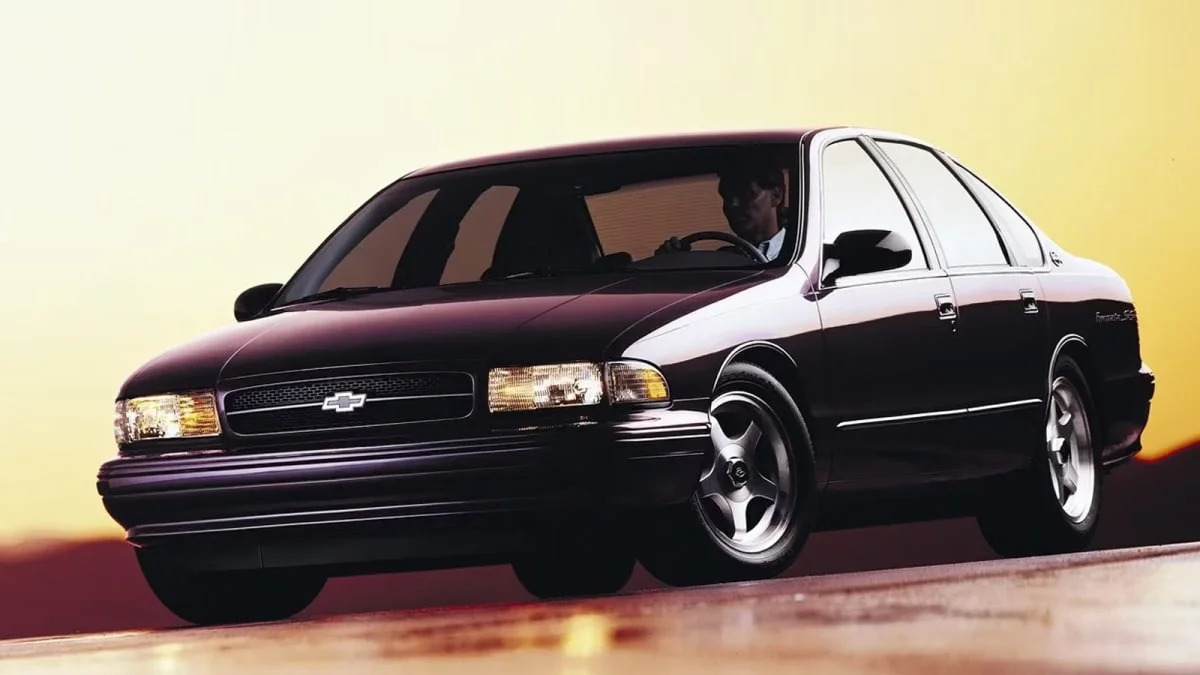
1995 Chevy Impala SS
Editor-in-Chief Greg Migliore: I would 100% drive an Impala SS in 1995. For a starting price of $22,910 (I’d find some option to get myself into the designated price range), I would still have cash left over to see the Counting Crows touring to support their seminal “August and Everything After” disc. In reality, I couldn’t drive in ‘95 and when I could later in the decade I actually had a ‘93 Lumina that only two of the four doors opened properly. I digress. Then and now I’d opt for the SS. It presaged the return for Detroit muscle in the mid-2000s with the Charger and Challenger. Chevy dropped a Corvette V8 in the humble cop car/taxi/family sedan Caprice, added rally wheels, a tighter suspension and some interesting colors, like black and purple. The result? A Clinton-era muscle car that had the ethos of 30 years prior.
